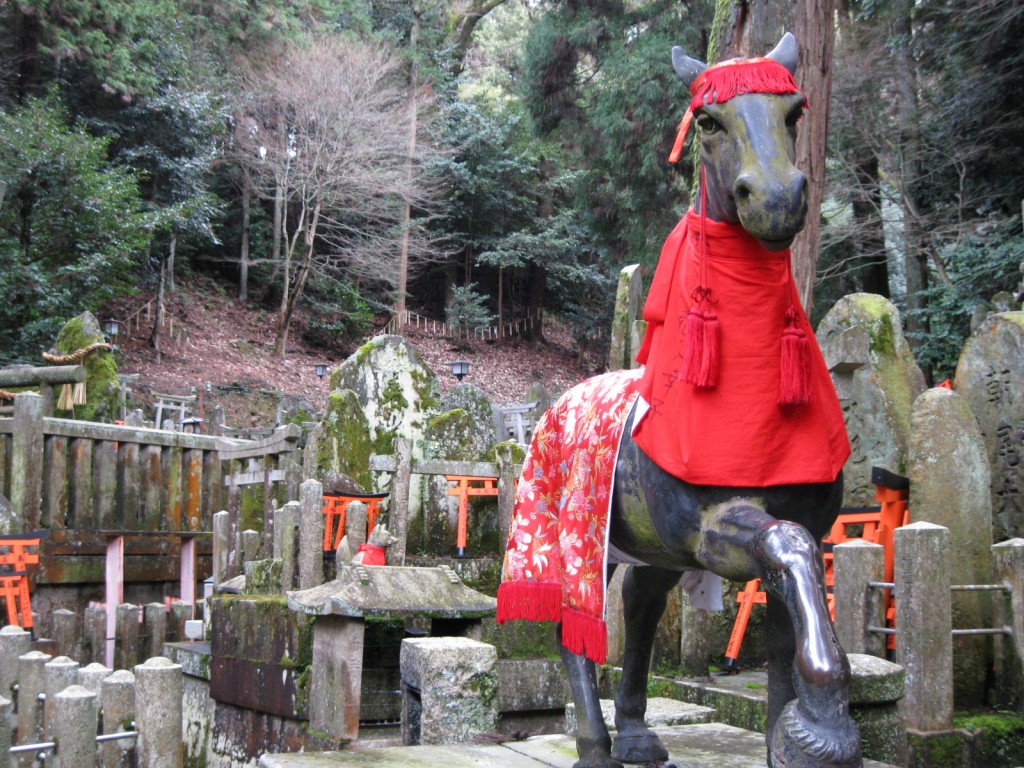Michael Saso, professor emeritus at the University of Hawaii, has written simply yet succinctly of the nature of religion in East Asia. Substitute ‘Shinto’ for Daoism in the passage below, and you pretty much have Japan instead of China.
Is Shinto a religion? Well, yes and no… (quote follows)
‘Buddhism and Daoism are cultural systems, not religions, in the sense of that word in Indo-European language usage. Religion, in Semitic, English, Arabic, Latin, Germanic, Turkic, and Hindi languages, means a faith or belief system to which one must subscribe, in order to belong. Thus, in all Indo-European cultures, one must belong to, or believe in only one system. It is unthinkable, for instance, to be Christian, Judaic, and Islamic, all at once.
In East and Southeast Asia, on the other hand, wherever religion is defined as the celebration of “rites of passage” (sacraments) and “annual festivals”, at least three (and sometimes more) religious systems provide rituals, moral ideals, and festivals. In China, for instance, Confucian social values, Buddhist rites for the deceased, and Daoist annual festivals, are all celebrated as essential elements in a healthily functioning society. One must be Confucian for human encounter, Buddhist for burial services, and Daoist when harmonizing with the great seasonal changes in nature. Confucian mind, Buddhist heart, and Daoist belly, is another way of expressing the “Three teachings, one culture” proverb that defines Asian religious culture.’
***************************************************************
For an earlier take on this question, see here.

Religion by another name...

I’m not sure where Professor Saso got his information about Indo-European Language usage, but the Oxford English Dictionary defines religion as: the belief in and worship of a superhuman controlling power, especially a personal God or gods. The definition says nothing about exclusivity, belonging to, or faith. One merely has to believe in the existence of superhuman powers and worship them. Under that definition Daoism and Shintô, both certainly “qualify” as religions.
And by “believe” above, I’ll quote one of the maxims of Descriptive Psychology, “What a person takes to be real is what he is prepared to act on.” In other words, if you act as if it was real, then for you, it is real.
I perfectly agree. By the way the word comes from latin “religere” (to connect together).
In social and human sciences a religion is qualified by the presence of beings such as gods (as you described them). Shintoism is a religion, though it has been adversed and probably weakend by historycal happenings
Thank you, Steven, for the input…
It’s certainly an engrossing topic, and one that to me strikes at the very core of the differences between East and West in terms of mindset. What appeals to me about Professor Saso’s quote is accounting for the monotheism of the Western tradition versus the multiple truths of the East.
The problem with the OED definition is that it could be accused of being ethnocentric. It’s a Western definition of religion, isn’t it? I don’t think Zen would fit into that definition, though I think everyone would agree that Zen is a religion. I’m not sure Daoism ascribes to a controlling power, either. The Way simply is… And there is more than one Shinto priest who claims to be atheist or agnostic… they may act as if they are performing for a supernatural being, but in their hearts they don’t believe it. And neither I suspect do 90% of Shinto followers who pay respects at a shrine and buy omamori…
Complicated, but fascinating…
Keep in mind that prior to Christianity and Islam, Indo-European religions were the same as Shinto & Daoism in this regard. Also, Hinduism has one of its roots in Indo-European Vedic religion. I find it odd for him to describe Christianity, Judaism, and Islam as “Indo-European” when all of them in fact have Semitic origins. Just a weird choice of words to me.
Good point…